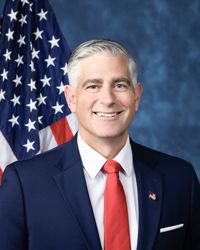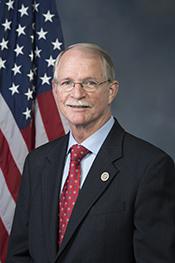H.R. 1319: To amend the Fair Labor Standards Act of 1938 and the National Labor Relations Act to clarify the standard for determining whether an individual is an employee, and for other purposes.
This bill aims to amend two major labor laws in the United States: the Fair Labor Standards Act of 1938 (FLSA) and the National Labor Relations Act (NLRA). The primary focus is on clarifying how to determine whether an individual is classified as an employee or an independent contractor.
Criteria for Determining Employee Status
The bill proposes specific criteria that would impact how individuals are classified under the FLSA. Major changes include:
- The redesignation of existing definitions to clarify terms and conditions related to employee status.
- The introduction of a standard stating that a person would be considered an independent contractor if:
- The organization does not significantly control how the individual performs their work, focusing instead on the final results.
- The individual has the usual opportunities and risks associated with entrepreneurship, including the ability to use their business judgment and skills.
- Compliance with legal or regulatory requirements.
- Adherence to health and safety standards.
- Requirements for insurance of any kind.
- Performance-based contractual standards, such as deadlines.
Employee Classification under the National Labor Relations Act
The bill also seeks to amend the NLRA concerning employee classification. This includes:
- Changing the definition of "employee" to align with the new criteria set forth under the amended FLSA.
- Stipulating that the aforementioned criteria under the FLSA will be the standard used to determine if individuals are classified as independent contractors or employees under the NLRA.
Overall, this bill aims to clarify employment classification rules, impacting how businesses and workers engage in labor relations and operate under existing labor laws.
Relevant Companies
- UBER - As a company that relies on a large workforce of independent contractors, changes in classification could impact its operating model and cost structure.
- LYFT - Similar to Uber, Lyft employs many drivers as independent contractors, making the bill's provisions crucial for its business operations and potential liabilities.
- AMZ - Companies in logistics and delivery services utilizing independent contractors may see operational changes affecting their workforce structure.
This is an AI-generated summary of the bill text. There may be mistakes.
Sponsors
16 bill sponsors
-
TrackKevin Kiley

Sponsor
-
TrackRick W. Allen

Co-Sponsor
-
TrackMichael Baumgartner

Co-Sponsor
-
TrackTim Burchett

Co-Sponsor
-
TrackEric Burlison

Co-Sponsor
-
TrackGlenn Grothman

Co-Sponsor
-
TrackThomas H. Kean, Jr.

Co-Sponsor
-
TrackJulia Letlow

Co-Sponsor
-
TrackMark Messmer

Co-Sponsor
-
TrackMary E. Miller

Co-Sponsor
-
TrackJohn R. Moolenaar

Co-Sponsor
-
TrackAndrew Ogles

Co-Sponsor
-
TrackRobert Onder

Co-Sponsor
-
TrackBurgess Owens

Co-Sponsor
-
TrackJohn H. Rutherford

Co-Sponsor
-
TrackElise M. Stefanik

Co-Sponsor
Actions
4 actions
| Date | Action |
|---|---|
| Jul. 23, 2025 | Committee Consideration and Mark-up Session Held |
| Jul. 23, 2025 | Ordered to be Reported in the Nature of a Substitute by the Yeas and Nays: 19 - 16. |
| Feb. 13, 2025 | Introduced in House |
| Feb. 13, 2025 | Referred to the House Committee on Education and Workforce. |
Corporate Lobbying
0 companies lobbying
None found.
* Note that there can be significant delays in lobbying disclosures, and our data may be incomplete.











